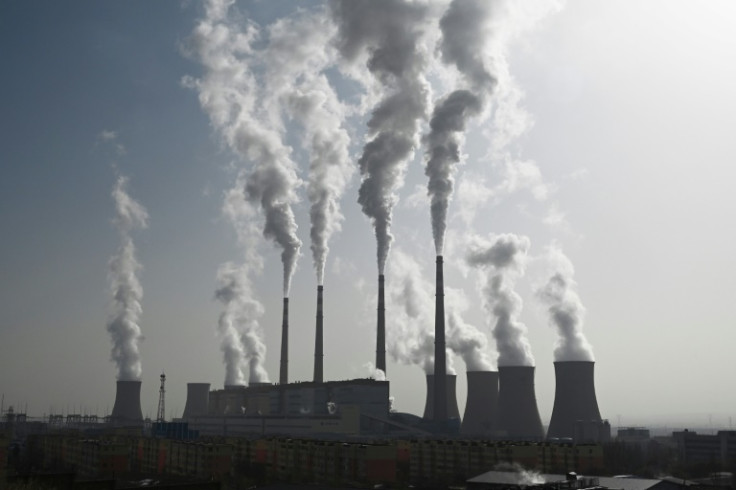PwC warns of soaring carbon offsetting costs, raising concerns for Net Zero goals
PwC's recent estimate casts doubt on the achievement of ambitious climate goals, underscoring the urgent need for transparency and proactive measures.

As companies around the world strive to meet their Net Zero targets, a new estimate from PwC warns of a dramatic increase in the price of corporate carbon offsetting.
According to the report, the cost of carbon offsets could quadruple by the end of the decade and rise by a factor of thousands in a carbon capture scenario by 2050. These findings raise questions about the financial feasibility of achieving ambitious climate goals and call for greater transparency in offsetting strategies.
PwC's latest research reveals that FTSE 350 businesses spent £38 million on voluntary carbon offset purchases in 2022. However, based on current pricing methods, the same amount of offsets is projected to cost these businesses over £135 million by 2030, marking a staggering 256% increase. The report suggests that prices will continue to climb until 2050, with a projected peak cost of £365 million for the same volume of offsets.
Interestingly, the research highlights that the majority of offsets obtained in 2022 were avoidance offsets, mainly from initiatives focused on preventing deforestation. However, there is a growing consensus that only offsets generated by initiatives that remove and permanently store carbon dioxide (CO2) should be accepted, adding further complexity to the offsetting landscape.
In a scenario where only removal offsets are allowed, PwC predicts that the cost of the same amount of voluntary offsets acquired by FTSE 350 businesses in 2022 (£38 million) could reach a staggering £438 million by 2030, representing a jaw-dropping 1,051 per cent increase. The report suggests that prices may peak in 2037 when FTSE 350 investments could cost a whopping £2.6 billion.
The research also expounded on the varying vulnerability of different industries to potential offset price volatility. Notably, the energy sector reported the highest spending on voluntary offsets in 2022, totalling £27 million. Based on the projected price assumptions for 2037 and 2050, the cost for the energy industry may surge to between £249 million and £1.8 billion, equivalent to 1.2 per cent to 8.5 per cent of their 2022 gross earnings.
Surprisingly, PwC's review of FTSE 350 reporting in 2022 found that only a fraction of companies acknowledged the cost of offsets. Out of the 118 firms mentioning carbon offsets, a mere 19 disclosed the expenses associated with them, and just seven acknowledged the possibility of future price hikes. This lack of openness inhibits investors and stakeholders from properly assessing the risks and impact on companies' Net Zero ambitions.
Furthermore, the report highlights that the majority of offsets purchased are avoidance offsets, and no FTSE 350 corporations currently disclose voluntary purchases of carbon capture offsets or removal programs. Around 80 per cent of the offsets acquired came from mixed-use and renewable energy projects aimed at preventing deforestation.
According to Ian Milborrow, PwC UK's Sustainability Partner, businesses across all industries must consider the potential financial implications of rising offset prices as part of their Net Zero strategies. If offsetting becomes prohibitively expensive, companies may struggle to fulfil their climate promises within their specified timeframes.
Milborrow suggests several approaches for companies to tackle these challenges. They can establish longer-term offset purchase agreements, implement internal carbon pricing mechanisms, and focus on decarbonisation efforts to reduce their vulnerability to future offset price increases. Importantly, he emphasises the importance of clear and consistent disclosure of carbon offset purchasing strategies through annual and sustainability reporting to provide transparency and reassurance for investors.
The expense of corporate carbon offsetting is a huge barrier for businesses all around the world as the race to achieve Net Zero accelerates. Concerns are raised regarding the likelihood of reaching aggressive climate objectives in light of PwC's prediction of skyrocketing offset prices.
Different industries, and the energy sector in particular, are more or less vulnerable to possible offset price volatility. Businesses must take proactive measures, such as internal carbon pricing and longer-term agreements, to manage these financial risks.
Furthermore, open disclosure of offset methods is essential to give stakeholders and investors trust and clarity. The success of business carbon offsetting ultimately depends on developing creative solutions that achieve a balance between environmental goals and practical financial considerations.
© Copyright IBTimes 2025. All rights reserved.






















